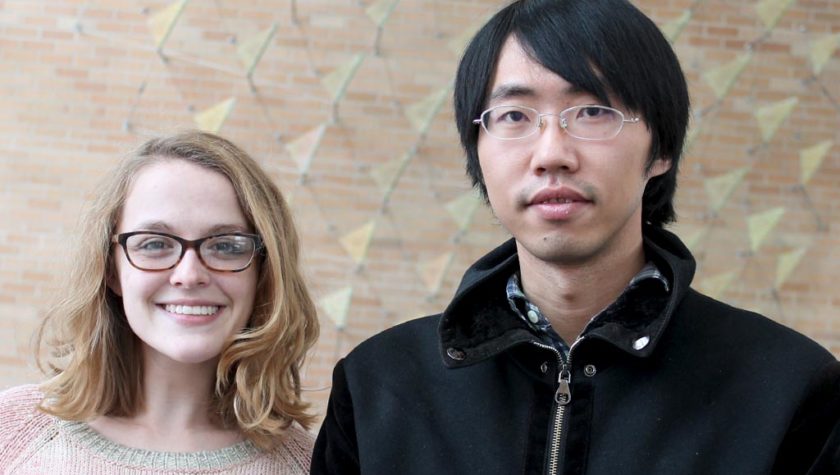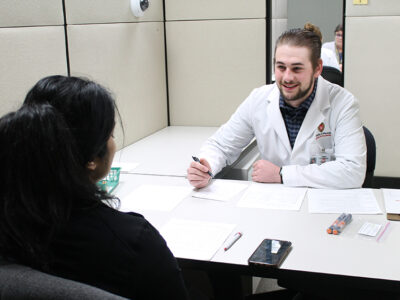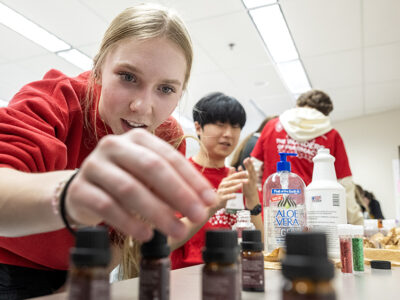
25
January

Pharmaceutical sciences graduate students, Moira Esson working in the laboratory of Associate Professor Sandro Mecozzi, and Men Zhu, working in the laboratory of Professor Lian Yu, will benefit from a new Student Seed Program.
The Advanced Materials Industrial Consortium (AMIC), a Wisconsin Materials Research Science and Engineering Center (MRSEC)-led group of industrial and academic members created to leverage the broad spectrum of university- and industry-based materials science resources and capabilities in the region created the Student Seed Program to be an opportunity for graduate students, postdocs, and/or undergraduate students to gain experience working on projects of interest to industry.
Mecozzi, in collaboration with Nicholas Abbott, Department of Chemical and Biological Engineering, submitted a proposal entitled “Self-Assembly of Fluorous Organic Molecules and Applications in Materials Science,” aimed at studying a full exploration of the assembly properties and potential macroscopic long-range ordering of simple molecules able to organize in liquid crystalline phases. They anticipate that the results of these studies will allow them to propose the rational design of fluorine-containing molecules and materials that will be characterized by highly specific self-assembling properties, as well as potential for liquid crystals formation and piezoelectric properties.
Yu was awarded seed money for a continuation of his project entitled, “IRG 2: Ultrastable Glasses: New Materials and New Insights.” In conjunction with Co-Leaders Paul Voyles and Mark Ediger, Yu’s work focuses on the cross-fertilization of ideas and techniques for organic and inorganic glasses to design ultrastable glassy materials and use them to address fundamental problems in glass science.
In addition to students having an inside look at problems/challenges facing industry, and developing solutions, they gain experience in funded research from proposal development to final reporting. The MRSEC award offsets funding for graduate student Esson, Zhu, and another student in the Abbott laboratory.
Mecozzi’s research interests include fluorous polymers in drug delivery and imaging; micelles and nanoemulsions; nanomedicine; reactions in micellar systems; molecular recognition of RNA.
Yu’s research focus is solid-state chemistry; Crystallization; Polymorphism; Amorphous solids and glasses; Surface mobility; Polymeric crystallization inhibitors.







